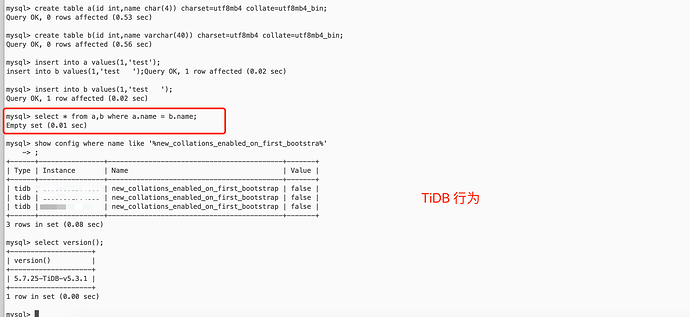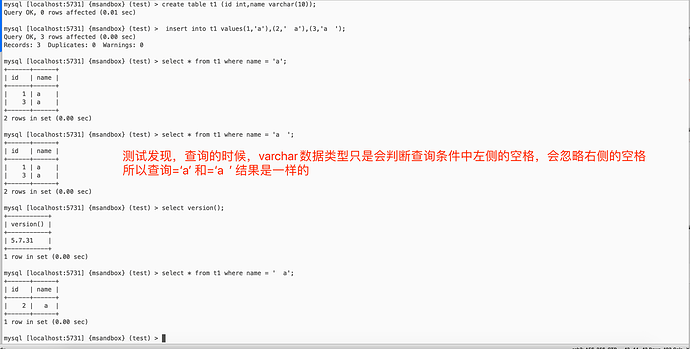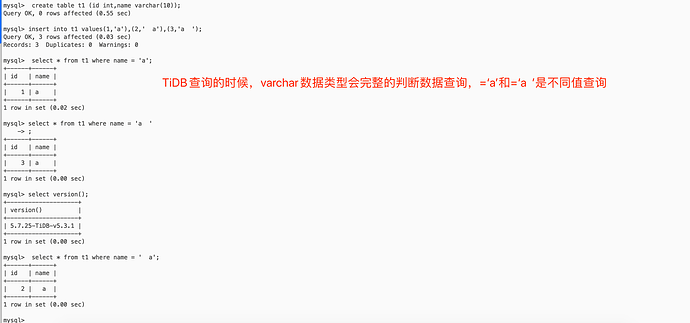Note:
This topic has been translated from a Chinese forum by GPT and might contain errors.Original topic: new_collations_enabled_on_first_bootstrap 参数真正的含义
I encountered a very interesting issue when executing the following SQL statements:
create table a(id int, name char(4)) charset=utf8mb4 collate=utf8mb4_bin;
create table b(id int, name varchar(40)) charset=utf8mb4 collate=utf8mb4_bin;
insert into a values(1, 'test');
insert into b values(1, 'test ');
select * from a, b where a.name = b.name;
In MySQL version 5.7.31, the join query returns data, but in TiDB version 5.3.1 (with new_collations_enabled_on_first_bootstrap set to false), it does not.
However, in version 6.1.0, the join query returns data (with new_collations_enabled_on_first_bootstrap set to true).
My personal thought is that this is related to how the varchar field type handles values with trailing spaces during queries. Based on the following tests:
create table t1 (id int, name varchar(10));
insert into t1 values(1, 'a'), (2, ' a'), (3, 'a ');
select * from t1 where name = 'a';
select * from t1 where name = 'a ';
In MySQL, if a varchar type stores values with trailing spaces, the query will also return the values with trailing spaces, for example, a and a are considered equal.
In TiDB, if a varchar type stores values with trailing spaces, the query will not return the values with trailing spaces, for example, a and a are considered unequal.
However, I am not sure why TiDB, when new_collations_enabled_on_first_bootstrap is set to true, handles varchar trailing spaces in the same way as MySQL.



